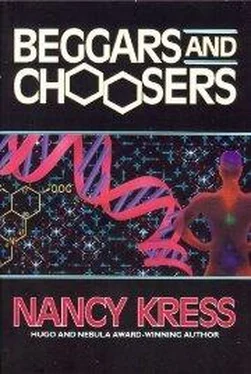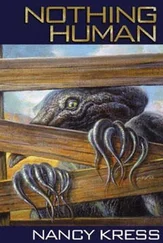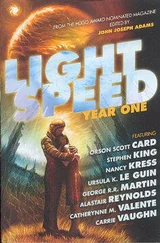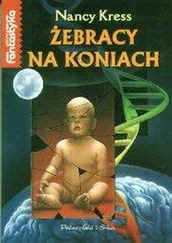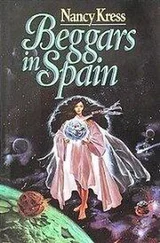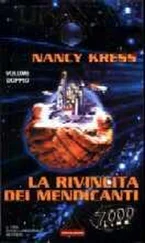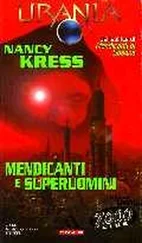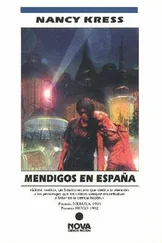Plants get their basic energy from sunlight. They use water from the soil and carbon dioxide from the air to form glucose. Glucose can then be repackaged as ATP. Most plants use chlorophyll to carry on this photophosphorylation.
Some bacteria, the halobacteria, can carry on both oxidative phosphorylation and photophosphorylation. They can both ingest nutrients and, under the right conditions, create ATP through a photosynthetic mechanism. In other words, they can get basic energy from either food or sunlight.
The halobacteria don’t use chlorophyll to do this. Instead, they use retinal, the same pigment that responds to light in the human eye. The retinal exists in conjunction with protein molecules in a complex called bacteriorhodopsin.
Your bodies have been modified to include a radically genetically engineered from of bacteriorhodopsin.
It exists under clear membranes which now exist at the ends of tiny tubules projecting between the dead skin cells of your outer epidermis. The modified bacteriorhodopsin is far more efficient, orders of magnitude more efficient, at capturing photons than are any thylakoids found in nature.
Additional tubules, with active transport capacity, also end in a permeable membrane at the surface of your skin. These can selectively absorb molecules of carbon, plus additional necessary elements, directly from the soil or other organic material. The absorbed molecules are acted upon by genemod enzymes, working in conjunction with your human thylakoids, and with nanoma-chinery replicating in your cells.
This is not as foreign to you as it may sound. The human embryo, when only a few cells old, develops an outer layer of cells called the trophoblast. The trophoblast possesses the unusual property of being able to digest or liquefy the tissues it comes in contact with. This is how the embryo implants itself in the uterus wall. Your reengineered skin can now liquefy and absorb other kinds of matter.
You have also been injected with genetically engineered nitrogen-fixing microorganisms.
Human tissue consists 96.6 percent of carbon, hydrogen, oxygen, and nitrogen. The nanomachinery now in your cells has been programmed to arrange these plus other less concentrated elements into whatever molecules are needed. These processes are all powered by sunlight, used far more efficiently than in nature. The energy from sunlight is stored as ATP to be used when there is no sunlight. Less than thirty minutes’ naked exposure per twenty-four-hour period is sufficient. A surplus can, as with food, be stored as glycogen or fat.
The Cell Cleaner will destroy any cancerous cells engendered as a result of ultraviolet exposure. It will also, of course, destroy any toxic molecules absorbed from the soil, by rearranging their atoms into nontoxic forms.
Nanomachinery will keep your gastrointestinal system capable of operation, even when it is unused for long periods of time. Genemod enzymes are designed to eliminate, through allosteric interactions, any subjective feelings of hunger.
When food is available, you can eat, and store energy from oxidative phosphorylation. When food is not available, you can lie on the soil, in the sunlight, and store energy through photo-phosphorylation.
Now you understand.
You are now autotrophic.
You are now free.
Our defense is not in armaments, nor in science, nor in going underground. Our defense is in law and order.
—Albert Einstein, in a letter to Ralph E. Lapp
BILLY WASHINGTON: EAST OLEANTA
Annie was out in the deep woods when I finally found her, me, after looking for a couple hours. She didn’t even tell me that she was going. More and more in the last year she’s independent like that, her. I was mad.
“Annie Francy! I been looking, me, all over the woods for you!”
“Well, I been right here, me,” Annie said. She sat up. She’d been lying on her back in a little sort of hollow in the leaves, and when she sat up, her, I forgot that I was supposed to be mad. She’d been feeding, her. Her naked chocolate breasts bobbed, them, and her hair had a few leaves stuck in it, and I could see the edge of her ass where it pushed on the soft ground. My pipe swelled. I was next to her, me, in two jumps.
But she pushed me away. I might of forgot, me, that I was mad, but Annie don’t ever forget when she is. “Not now, Billy. I mean it, you!”
I stopped. It was hard. She tasted so sweet, her, it seemed like I couldn’t never get enough of her. Not in the year since we went down into Eden. Not in ten more years, not in hundred. My old pipe was stiff as a hunk of metal.
Annie got up, her, real leisurely, dusting the leaves off her thighs and ass. She knew, her, how I was watching. There was even a little smile in her eyes. But she was still mad.
“Billy — I still don’t want, me, for us to go to West Virginia. It ain’t going to help nobody.”
I eased my pants a little, me. “Lizzie wants to go. She is going, her. With or without us.”
Annie scowled. Her and Lizzie fight even more now, them, since Lizzie turned thirteen. Annie wants to keep Lizzie a little girl, is what I think, same as for a long time she wanted to keep me an old man, like old men used to be. Before. Annie didn’t never like change, her. That’s why she don’t want to go to West Virginia.
“Lizzie really said that, her? That she’d go without me?”
I nodded. Lizzie would, too. She would go, her, even if Vicki didn’t. There ain’t no stopping Lizzie these days. You’d of thought it’d be the old and the sick who’d be the most changed since Before, but the truth is, it’s the young. There ain’t no stopping none of them from doing nothing. Used to be a thirteen-year-old — or twelve, or ten — needed to be taken care of. Fed, nursed through sickness, protected from a rabid raccoon or a bad cut or spoiled food. No more. They don’t need us, them.
Just like we don’t need the donkeys.
Annie pulled on her dress, her, watching me watch, but without seeming to notice nothing. The dress was longer than the youngest women wear, even in the summer — Annie can’t change everything about herself, her, just ’cause there ain’t no more endless supplies of jacks or parkas or boots. Her dress was weaved out of some plant thing, not cotton, on the weaving ’bot, just two weeks ago. It didn’t have no color, like they don’t now. People like their clothes, them, to look natural, which don’t make sense because Annie’s dress had already started to get eaten by her breasts and hips and ass. There was tiny holes in interesting places. My pants was the same way. I ain’t going to wear no dress, me, like the younger men, even if it is easier for feeding. I ain’t no young man in my head, me, no matter what my body can do now.
Annie Francy’s gorgeous ass disappeared under the drop of her dress.
She tied on her sandals, left over from Before. They were nearly worn out, them. Shoes and boots was supposed to of been on the Council’s meeting tonight, until this other thing come up so fast and hard and there ain’t going to be no East Oleanta Council meeting tonight. Maybe never again, for all I knew, me.
I held Annie’s hand, me, while we walked back to town. I remember when she wouldn’t never go into the woods, her. But now not even Annie’s afraid in the woods.
In West Virginia — that’s something else.
Annie’s hand felt smooth and strong. I rubbed my thumb, me, in a little circle over her palm. Annie Francy. Annie. Francy. She was scowling, her, her lips pressed tight together.
“It ain’t right to let them vote in Council as young as twelve. It ain’t right.”
Читать дальше
